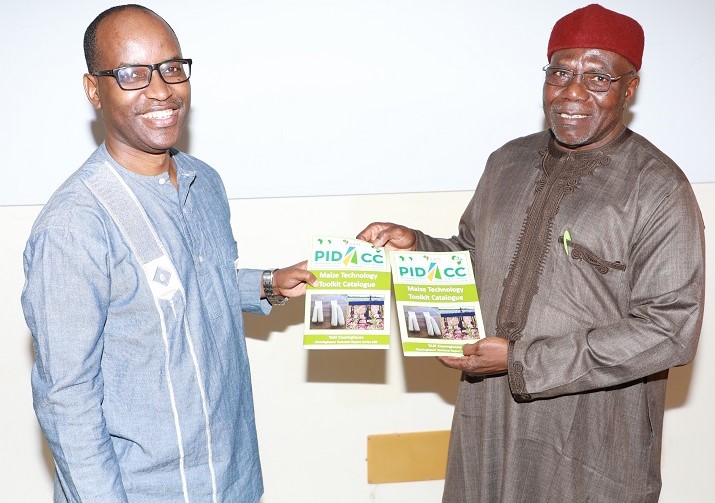The crippling cost of debt financing for many developing countries has hamstrung their recovery from the COVID-19 pandemic, forced cutbacks in development spending, and constrained their ability to respond to further shocks, according to a new report launched by the United Nations today.
The 2022 Financing for Sustainable Development Report: Bridging the Finance Divide finds that while rich countries were able to support their pandemic recovery with record sums borrowed at ultra-low interest rates, the poorest countries spent billions servicing debt, preventing them from investing in sustainable development.
The pandemic shock plunged 77 million more people into extreme poverty in 2021, and by the end of the year many economies remained below pre-2019 levels. The report estimates that in 1 in 5 developing countries’ GDP per capita would not return to 2019 levels by the end of 2023, even before absorbing the impacts of the Ukraine war.
“As we are coming up to the halfway point of financing the world’s Sustainable Development Goals, the findings are alarming,” UN Deputy Secretary-General Amina Mohammed said.
“There is no excuse for inaction at this defining moment of collective responsibility, to ensure hundreds of millions of people are lifted out of hunger and poverty. We must invest in access for decent and green jobs, social protection, healthcare and education leaving no one behind,“ she added.
Bridging the Finance Divide says on average, the poorest developing countries pay 14 per cent of revenue for interest on their debt, almost 4 times higher than developed countries, at 3.5 per cent. Globally, many developing countries were forced to cut budgets for education, infrastructure and other capital spending as a result of the pandemic.
The war in Ukraine will exacerbate these challenges and create new ones, with higher energy and commodity prices, renewed supply chain disruptions, higher inflation coupled with lower growth, and increased volatility in financial markets.
For many developing countries, the war will likely lead to further increases in debt distress and increased hunger. Before the war, the pandemic recovery gaps had already widened, with developing countries on average having only enough COVID-19 vaccine doses for 24 per 100 people, versus almost 150 per 100 people for developed countries.
Shockingly, in 2021, 70 per cent of 10-year-olds in developing countries were unable to read a basic text, a 17 per cent increase from 2019. With food prices in 2021 already at their highest level in a decade, the UN fears the conflict in Ukraine risks dramatically worsening the economic outlook for many countries.
The rate of post-pandemic economic recovery in developed countries, however, points to a way forward for greater investment.
“The developed world proved in the last two years that millions can be lifted out of poverty by the right kind of investment – in resilient and clean infrastructure, social protection or public services,” said UN Under Secretary-General Liu Zhenmin, head of the Department of Economic and Social Affairs, which produced the report.
“The international community must build on that progress, and ensure developing countries can invest at similar levels, while reducing inequality and securing a sustainable energy transition,” he added.
The report notes that there was some progress on poverty reduction, social protection, and investment in sustainable development in 2021, driven by actions in developed and some large developing countries, including $17 trillion in COVID-19 emergency spending. Positive performance includes:
- Increased funding of research and development, green energy and digital technologies, for example from the European Union’s Next Generation EU recovery plan and the Infrastructure Investment and Jobs Act in the USA.
- Rebounding of private investment in 2021 — with China and USA accounting for more than 50 per cent of the improvement.
- Doubling of sustainable bond issuance to over $1 trillion, while sustainability-themed funds grew 62 per cent from 2020.
- Private equity and venture capital investment in developing countries reached a record $230 billion (from $150 billion in 2020).
The report also notes record growth of Official Development Assistance (ODA), which increased to its highest level ever in 2020 rising to $161.2 billion. Yet, 13 countries cut ODA, and the sum remains insufficient for the vast needs of developing countries.
The UN fears the fallout from the crisis in Ukraine, with increased spending on refugees in Europe, may mean cuts to the aid provided to the poorest countries. In the face of a global crisis, near-time actions and additional international support are needed to prevent debt crises and address the high cost of borrowing.
However, the vast majority of developing countries will need active and urgent support to get back on track to achieve the Sustainable Development Goals. The report estimates that in the poorest countries a 20 per cent increase in spending will be required for key sectors.
Bridging the Finance Divide recommends actions in three areas:
- Financing gaps and rising debt risks must be urgently addressed. For example, speeding up debt relief and expanding eligibility to highly indebted middle-income countries, agreeing to debt swaps, and rechanneling of $100 billion of unused special drawing rights to countries in need. Countries can boost long-term, affordable, stable financing by strengthening the system of public development banks with higher capacity and financial support to national institutions.
- All financing flows must be aligned with sustainable development. For example, the international tax system should reflect the changing global economy and allow fair tax governance, trade and investment policy actions that can address vaccine inequality and improve access to medical products, while globally-consistent corporate sustainability reporting standards are needed for both privately-owned and listed companies. Current high fossil fuel prices provide a renewed opportunity for countries to accelerate investments in a sustainable energy transition.
- Enhanced transparency and a more complete information ecosystem will strengthen the ability of countries to manage risks and use resources well. For example, tackling illicit financial flows with improved sharing and use of tax information, enhancing transparency of debt data and developing long-term credit ratings for sovereigns.












